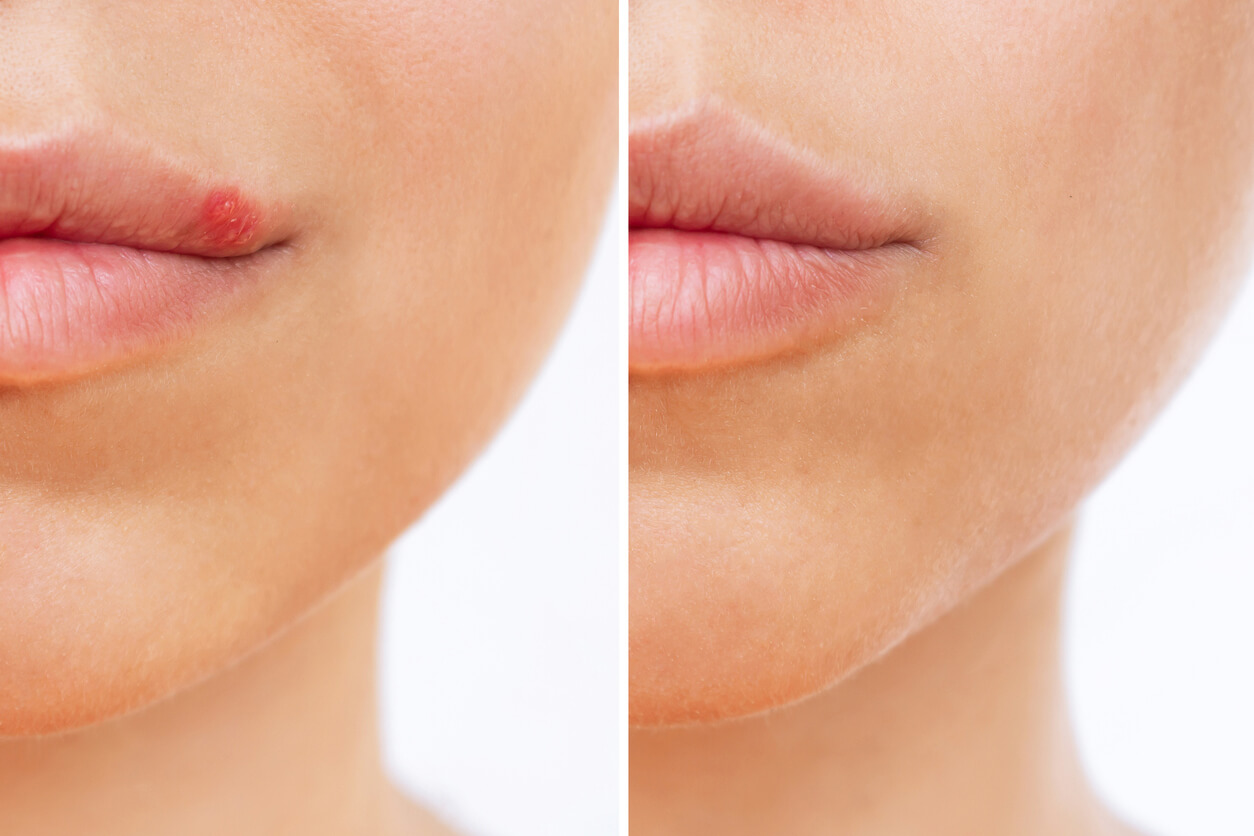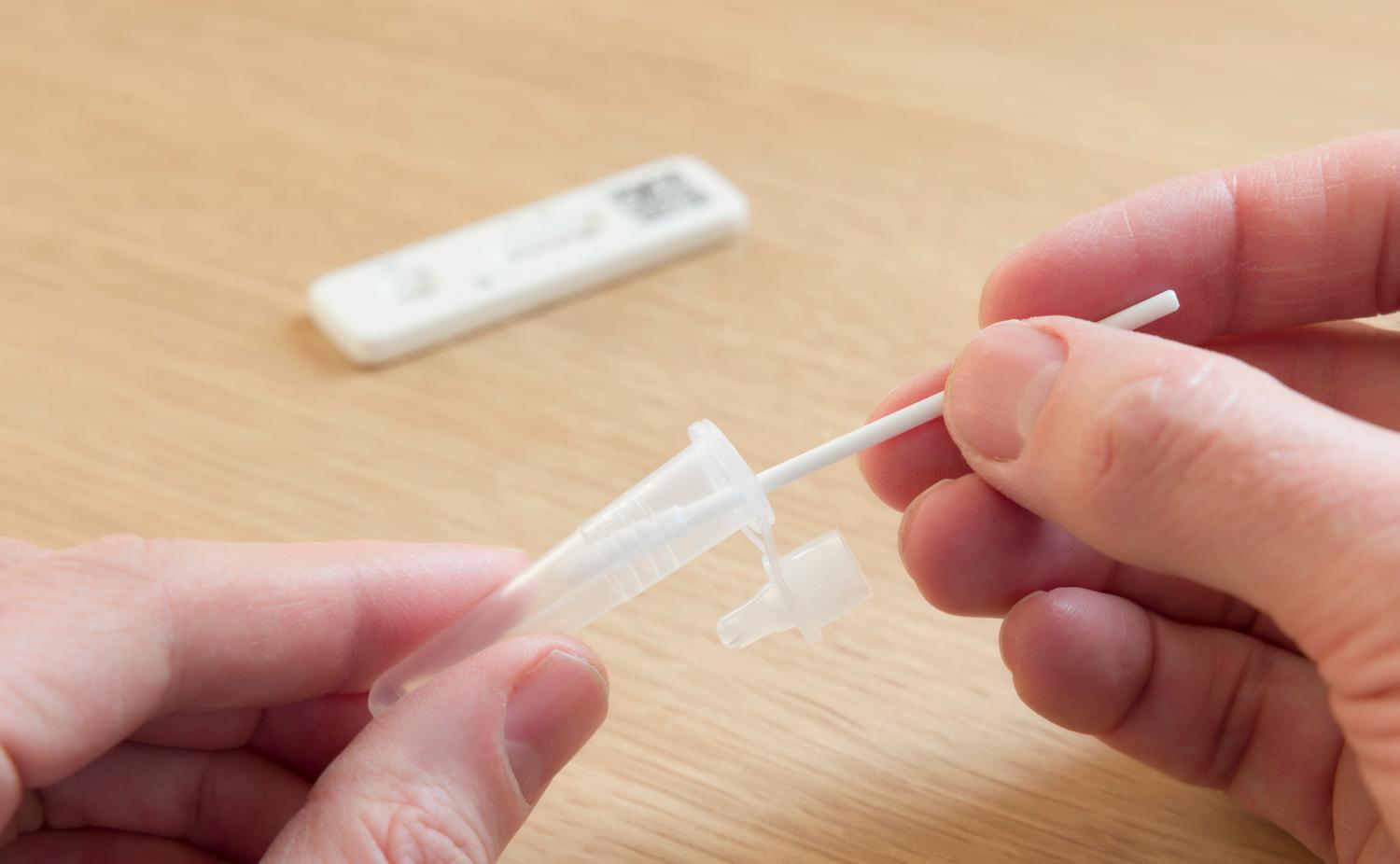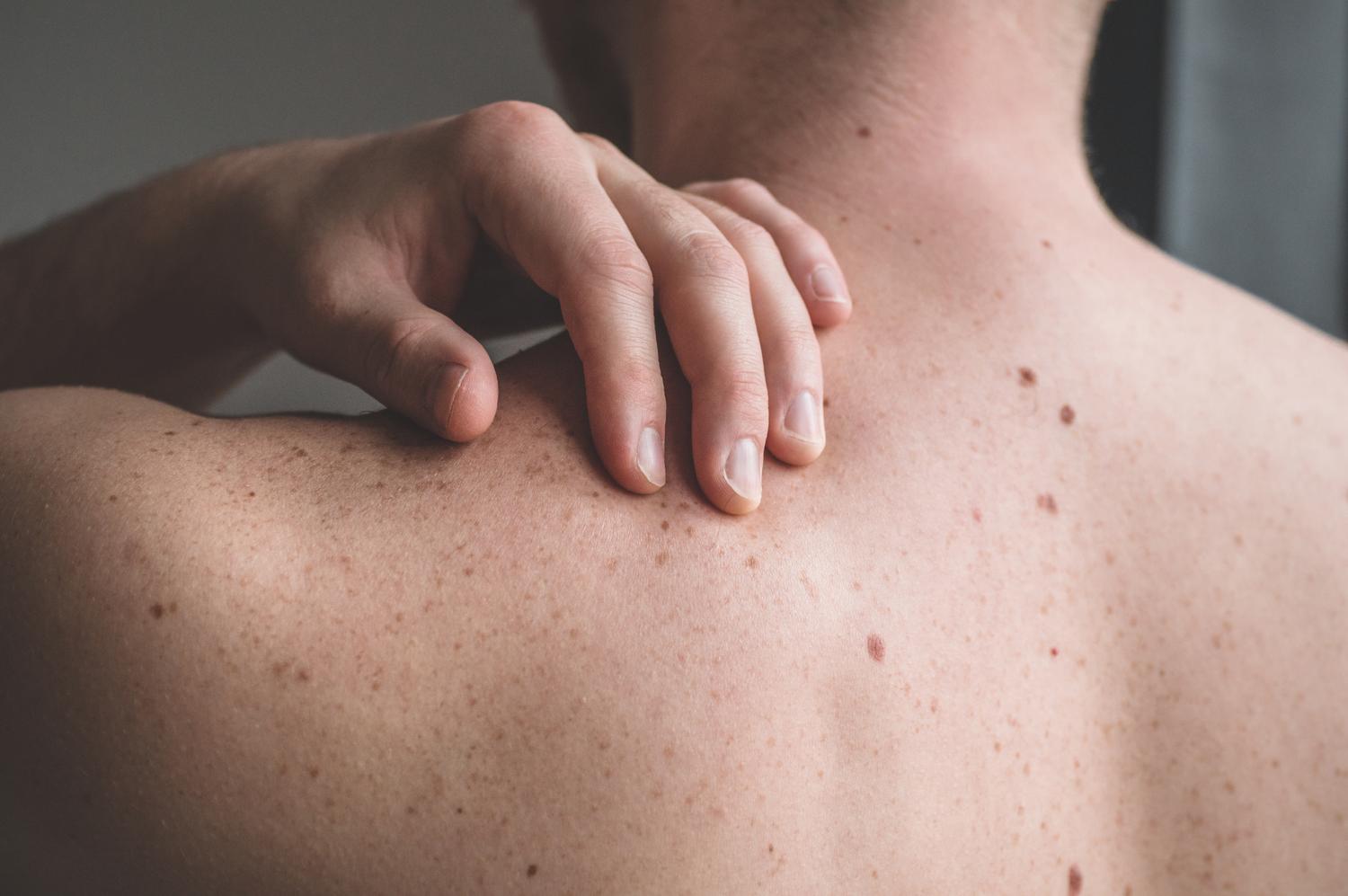What Does Genital Herpes Look Like? Symptoms and Treatment Options
Learn what genital herpes looks like, different stages of genital herpes, and how to tell it apart from other conditions.
Herpes is one of the most common sexually transmitted infections (STIs) in the world. It’s caused by a virus called the herpes simplex virus (HSV). There are two types of herpes: herpes simplex virus type 1 (HSV-1), which typically causes oral herpes, and herpes simplex virus type 2 (HSV-2), which typically causes genital herpes. It’s estimated 1 in 6 Americans aged 13-49 have genital herpes.
Part of the reason why herpes is so common is that it’s very contagious. A herpes infection can be easily spread through saliva or skin-to-skin contact like kissing, oral sex and anal sex.
Another reason why herpes is so prevalent is that it’s often asymptomatic. This means that many people do not experience symptoms, or mistake their symptoms for other conditions like ingrown hairs or razor burn. Because of this, as many as 90 percent don’t realize that they have the virus at all!
To detect herpes, manage outbreaks and reduce transmission, it is important to be familiar with the signs and symptoms of herpes. In this blog, we’ll discuss what a genital herpes outbreak looks like, the different stages of an outbreak, and how to tell herpes apart from other conditions. We’ll also highlight some testing and treatment options for convenient, affordable care.
What does genital herpes look like?
Genital herpes typically presents as small clusters of painful or itchy fluid-filled blisters, bumps, or pimples that are red, white or yellow in appearance. The bumps are typically 1-3 millimeters in diameter and burst after 5 to 7 days, oozing a clear or whitish fluid. After bursting, the blisters develop into open ulcers that crust over and scab after several weeks.
These sores can develop in clusters on or around the genitals, including the scrotum, vulva and cervix. A herpes rash can also develop on the butt and thighs. Aside from painful sores and rashes, genital herpes can also result in itching and pain during urination.
The first time that someone experiences a genital herpes outbreak is often the most difficult. The ulcers can last around 3 weeks and can cause serious discomfort. However, flare-ups tend to be less severe after the initial outbreak.
Different stages of herpes outbreaks
The appearance of genital herpes can change depending on the stage of the infection. These stages include the prodromal stage before blisters appear, the vesicular stage when blisters form, and the ulcerative stage when the genital sores are open.<
The early (prodromal) signs of a herpes breakout can include:
- Fever
- Fatigue
- Muscle aches or shooting pains
- Swollen lymph nodes
- Tingling, itching, or burning sensations in the affected area
The blister stage (vestibular) of a herpes outbreak can include symptoms such as:
- Small blisters or bumps that are usually filled with a clear fluid
- Blisters or bumps that develop individually or in clusters
The healing stage (ulcerative ) of a genital herpes outbreak can include symptoms such as:
- Oozing or fluid leaking from blisters or bumps
- Bumps may be crusting over into shallow sores or ulcers
- Sores that are scabbing over
Herpes outbreaks can also vary in appearance from episode to episode. The first outbreaks tend to be more severe, with extensive blisters, increased pain, and possibly flu-like symptoms. Recurrent outbreaks tend to be milder and shorter in duration.
Recognizing these early signs is key to managing outbreaks and potentially reducing their severity through timely antiviral treatment.
How to tell genital herpes from other conditions
Symptoms of genital herpes can be similar to symptoms of conditions such as an ingrown hair, syphilis, or contact dermatitis. However, there are key differences:
- Appearance: Herpes sores typically begin as painful blisters that eventually burst and leave sores, often in clusters. In contrast, ingrown hairs lead to red, sometimes itchy bumps where the hair is growing back into the skin. An ingrown hair may also have a visible hair trapped beneath the skin surface. Syphilis sores are hard to the touch.
- Symptoms: Herpes may cause flu-like symptoms during an initial outbreak, including fever and swollen lymph nodes. Flu-like symptoms typically do not occur with an ingrown hair or other skin conditions like contact dermatitis or a yeast infection.
- Pain: Herpes sores tend to be very painful, especially during the first outbreak. While ingrown hairs can cause discomfort and tenderness, the pain is usually localized and less intense than a herpes outbreak. Sores from syphilis tend to be painless.
- Size of the lesions: Herpes sores tend to be quite small in size - about 1 to 3 millimeters. While syphilis can also cause sores, those sores are normally painless and can be up to three centimeters in size.
If you're uncertain about your symptoms, it's essential to consult a healthcare provider for medical advice. They can take a blood test and swab a sore to test for the virus. These tests are the best way to determine a diagnosis and get effective treatment.
Fast treatment for a genital herpes outbreak
While there is no cure for herpes, there are several treatments that can help manage symptoms, reduce the frequency of outbreaks, and minimize the risk of transmission to others. Treatment options include:
- Antiviral Medications: Prescription medications such as acyclovir, valacyclovir, and famciclovir can help heal sores sooner. They can also reduce the severity and duration of symptoms, and in some cases, prevent or reduce outbreaks.
- Pain Relief: Over-the-counter pain relievers such as ibuprofen or acetaminophen can help alleviate pain associated with outbreaks. Your provider might also recommend a topical anesthetic cream to numb the area and provide temporary relief from itching or discomfort.
- Home Care Measures: Soaking in a warm bath can help to relieve discomfort from herpes symptoms. Try to keep the genital area clean and dry, and avoid wearing tight-fitting clothes or rough fabrics that can irritate your outbreak further.
If you’re experiencing an active genital herpes outbreak, you should avoid sexual activity altogether since the herpes virus is extremely contagious. Communicating with partners about your diagnosis is key to everyone’s sexual health and safety.
How Sesame can help
If you feel like you are experiencing the onset of a herpes outbreak or are looking for a hand with symptom management, Sesame can help.
Our platform offers discreet, same-day online STD management consults. During these virtual visits, our providers can prescribe medications and offer guidance to help you effectively - and affordably- manage your symptoms.









